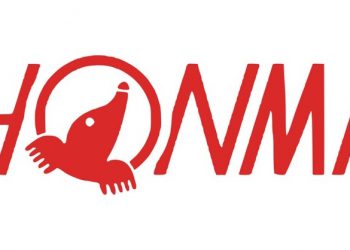
With stock market charts resembling the contours of a roller-coaster ride in recent days, many Americans could be forgiven for eyeing their 401(k)s with a little concern.
Retirement savings are crucial to the financial well-being of millions of especially older people in the U.S., so the concern is understandable.
But just how worried should people be by market fluctuations? And just how big a hit do 401(k)s take when markets fall? The Conversation turned to Western Governors University’s Ronald Premuroso, an expert in this area, for answers.
What is a 401(k)?
Simply put, a 401(k) is an employer-sponsored retirement savings plan in which employees contribute a portion of their compensation on a tax-deferred basis.
The employee is eligible at any age to contribute to a 401(k) plan and has the option to pay into these plans throughout their employment. Many employers match some or all of an employee’s contributions, making the plan even more attractive.
What about withdrawals?
Under Internal Revenue Service rules, someone with a 401(k) is required to start making monetary withdrawals from their plan when they reach age 73. Some people start withdrawing at an earlier age.
Someone with a 401(k) can withdraw funds from the plan early, and at any time. But the money amounts withdrawn will typically be deemed taxable income. In addition, those age 59 and a half and under will likely face a 10% penalty on the withdrawal, unless the employer’s plan allows for hardship distributions, early withdrawals or loans from your plan account.
The IRS has specific rules for these early withdrawals; if you find yourself in this situation, you should get help from a tax professional.
All withdrawals starting at age 73, which tax professionals call “RMDs,” are then taxable in retirement – presumably at a lower tax rate than the employee was subject to while employed and working. So these withdrawals starting at age 73 can be a very tax-efficient way of financial planning, including personal income tax planning, for later in life, especially in one’s retirement years.
Again, it’s important to get help from a tax professional to make sure you meet the IRS’ RMD dollar withdrawal requirements once you start withdrawing.
In calendar-year 2025, the most that an employee can contribute to a tax-deferred 401(k) plan annually is US$23,500, including the employer’s match. “Super catch-up contributions are allowed for employees over the age of 50 to their employer’s 401(k) plan each year indexed to inflation. In 2025, super catch-up contributions allow individuals age 50 and older to contribute an additional $7,500 beyond the standard limit, bringing their total annual contribution to $31,000. For those turning age 60, 61, 62 or 63 in 2025, the SECURE Act 2.0 allows a higher catch-up contribution limit of $11,250, resulting in a total allowable contribution of $34,750 in 2025.
When and why did 401(k)s become popular?
Before 1978, retirement savings options were limited.
In 1935, Congress created the Social Security Retirement Plan. This was followed by the Employee Retirement Income Security Act of 1974, which created individual retirement accounts, or IRAs, as a way for employees to save tax-deferred money for their retirement.
401(k) plans became popular with the passage of the Revenue Act of 1978 by Congress.
Congress saw 401(k) plans at that time as an alternative way to supplement Social Security benefits that all eligible Americans are entitled to receive upon retirement. In 1981, the IRS issued new rules and regulations allowing employees to fund their 401(k)s through payroll deductions. This significantly increased the number of employees contributing to their employers’ 401(k) plans.
As of September 2024, Americans held $8.9 trillion in 401(k) plans, according to the Investment Company Institute. A study published by the Pension Rights Center toward the end of 2023 using data provided by the Bureau of Labor Statistics concluded that 56% of all workers – including private sector and state and local government workers – participate in a workplace retirement plan. That equates to 145 million full- and part-time workers.
How are 401(k) plans affected by market rises and falls?
Contributions to a 401(k) are typically invested in a variety of financial instruments, including in the stock market.
Most 401(k) plans offer investment options with varying levels of risk, allowing employees to choose based on their personal comfort levels and financial goals.
Employers typically outsource the management of these 401(k) plans to third parties. Some of the largest companies managing 401(k) funds on behalf of employers and employees include Fidelity Investments, T. Rowe Price and Charles Schwab, to name just a few.
Because many of these investments are tied to the stock market, 401(k) balances can rise or fall with market fluctuations.

Halfpoint Images/Getty Images
Should I be worried about the stock market tanking my 401(k)?
It depends – on when you started making contributions, when you plan to retire and when you expect to start making withdrawals.
Employees with 401(k) accounts should only be worried about falling stocks if they need the money right now – either for retirement living expenses or for other emergency reasons. If you don’t need to take money out soon, there’s usually no reason to panic. History has shown that markets can rebound quickly; short-term drops often don’t signal long-term trends.
Over time, the stock market has experienced many periods of falling stock prices: the bursting of the internet bubble of 2000; the period after the events of 9/11; and the U.S. and global banking crisis of 2007-2010, to name but three.
But overall, over time, stock market returns have averaged 9% from 1994 to 2024, and this includes the periods of falling stock prices mentioned above.
So even if you are a baby boomer heading for retirement and your 401(k) has taken a hit in recent weeks, don’t panic. Bear in mind the truism that stock markets can always go down as well as up.
History suggests that in the long run, depending upon your plans and timing for retirement, working together with a trusted financial adviser strategically with regard to your 401(k) retirement savings is a good approach, especially during periods like we have seen in recent weeks in the stock market.
This article is for informational purposes and does not constitute financial advice. Consult with a qualified financial adviser before making financial decisions.
![]()
Ronald Premuroso does not work for, consult, own shares in or receive funding from any company or organization that would benefit from this article, and has disclosed no relevant affiliations beyond their academic appointment.













